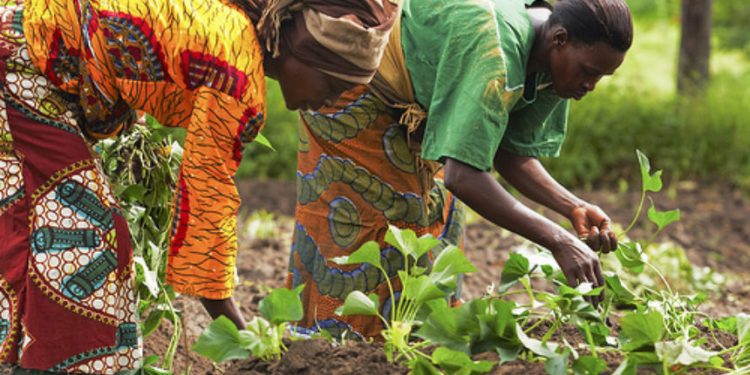A Professor of Agricultural Economics at the Obafemi Awolowo University, Ile-Ife, Osun State, Prof. Adeolu Ayanwale has urged the Nigerian Government to prioritize the training of farmers on digital tools as part of efforts to increase food production in the country.
Prof Ayanwale made the appeal during a one-day training and capacity development workshop organised by the Commonwealth of Learning, Canada in collaboration with the Obafemi Awolowo University, Ile-Ife and the Agricultural and Rural Management Training Institute (ARMTI), Ilorin.
Ayanwale said that digital training had become a necessity to ensure improved and increased agricultural production adding that “Digital training simply means teaching farmers how to use digital tools on their farms and in various phases of their crops’ value chain – crop production, crop growth and development, crop marketing, etc.”
The Prof also noted that “the federal government should embrace teaching farmers how to use digital devices such as phones, radio, internet for production and marketing, such that they can begin to market their produce on WhatsApp, Instagram, Facebook, and Twitter among others.
“This will go a long way in helping to improve and replicate for youth and women farmers, how to improve their farms’ productivity and eventually enhance the food security of the nation. This is a training that the federal government should be interested in, for food inflation is more than 40 percent now, which is not really helpful for the citizens.
“But when we build capacity in this situation, and each and everyone is able to produce enough food, the food inflation would come down, then there would be the achievement of zero hunger, which is the Sustainable Development Goal 1 (SDG), so that nobody would go hungry.”
Prof Ayanwale also explained that the workshop series with the theme ‘Scaling-up Lifelong Learning for Farmers on Digital Agricultural Solution for Vegetables Farmers in Southwest Nigeria towards Achieving the SDG’ which commenced in March 2023 has since trained over 5000 beneficiaries.
Speaking about the youth and female farmers who have been trained, Ayanwale said “their productivity will increase, a lot of technical training has been done. They are equipped on how to digitally market their produce and this will enhance their income and reduce food insecurity in the country.”
Also, Dr Olufemi Oladunni, the Executive Director, ARMTI, urged the beneficiaries to adhere to the training given to them on spacing in applying fertilisers to their plants.
Oladunni charged them not to apply fertiliser during the rainy season and to grow agro-ecological friendly by making use of organic manure at times rather than regular usage of inorganic fertiliser.
“What we are trying to do is to develop farmers by capacitating them, so that they can produce more for their immediate family, neighbours and nation at large.
Also, Prof. Kemi Idowu, from the Department of Soil Sciences & Land Resources Management, OAU, said that they observed that farmers had challenges with climate change, especially with the management of soil water and fertility.
Idowu advised the participants to make use of training on methods of water application, nursery management, using plastic pots, shade, low tent shade for raising their seedlings.
She said that with the training given to the farmers, they could now identify types of fertilisers and the methods of applying them, adding that they could also prepare their own compost manure.
One of the participants, Mrs Opeyemi Olaobaju, appreciated the organisers of the workshop, pledging that they would use the training and money given to them judiciously.
Source: NAN

